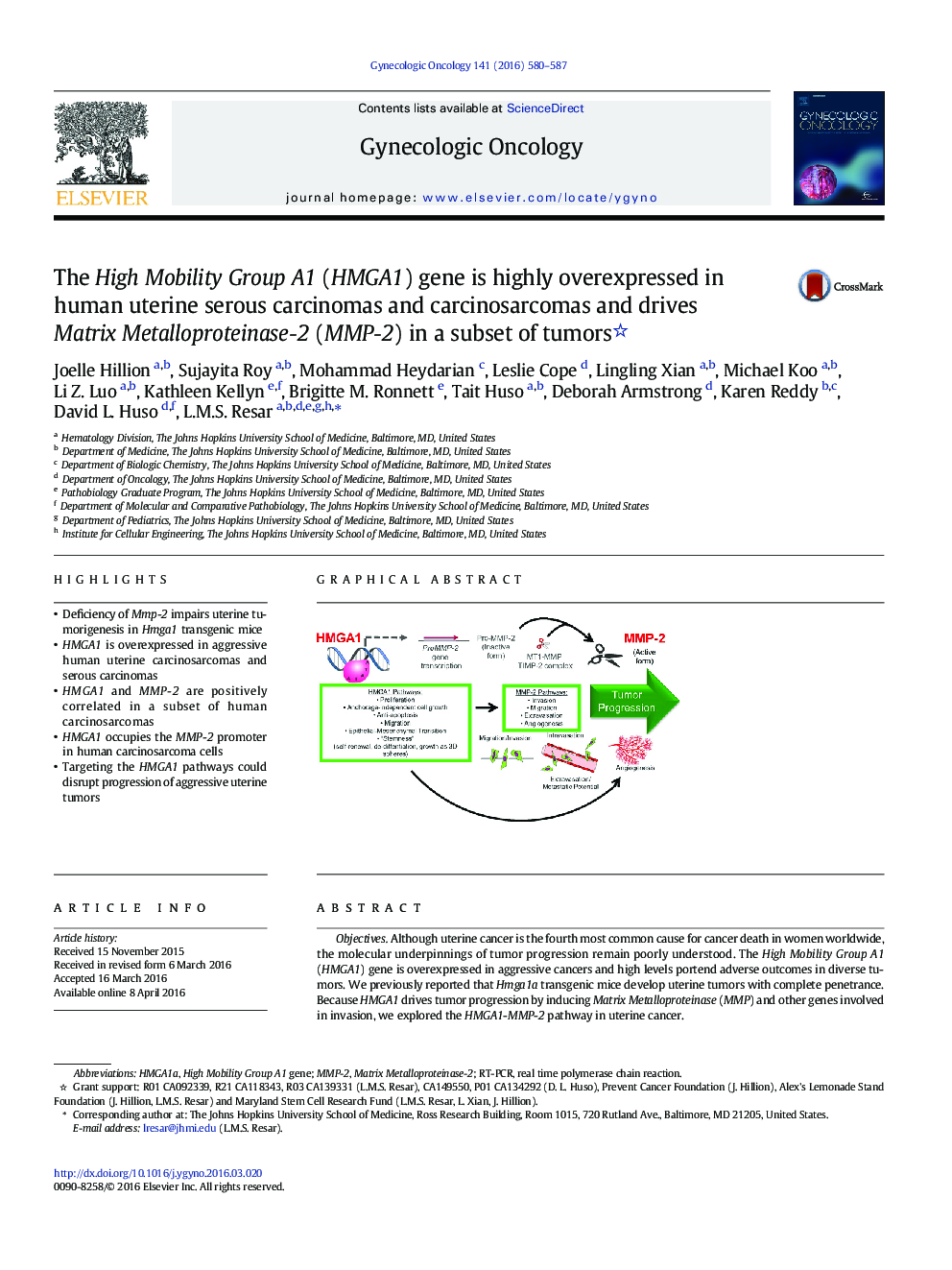| کد مقاله | کد نشریه | سال انتشار | مقاله انگلیسی | نسخه تمام متن |
|---|---|---|---|---|
| 3942951 | 1254060 | 2016 | 8 صفحه PDF | دانلود رایگان |

• Deficiency of Mmp-2 impairs uterine tumorigenesis in Hmga1 transgenic mice
• HMGA1 is overexpressed in aggressive human uterine carcinosarcomas and serous carcinomas
• HMGA1 and MMP-2 are positively correlated in a subset of human carcinosarcomas
• HMGA1 occupies the MMP-2 promoter in human carcinosarcoma cells
• Targeting the HMGA1 pathways could disrupt progression of aggressive uterine tumors
ObjectivesAlthough uterine cancer is the fourth most common cause for cancer death in women worldwide, the molecular underpinnings of tumor progression remain poorly understood. The High Mobility Group A1 (HMGA1) gene is overexpressed in aggressive cancers and high levels portend adverse outcomes in diverse tumors. We previously reported that Hmga1a transgenic mice develop uterine tumors with complete penetrance. Because HMGA1 drives tumor progression by inducing Matrix Metalloproteinase (MMP) and other genes involved in invasion, we explored the HMGA1-MMP-2 pathway in uterine cancer.MethodsTo investigate MMP-2 in uterine tumors driven by HMGA1, we used a genetic approach with mouse models. Next, we assessed HMGA1 and MMP-2 expression in primary human uterine tumors, including low-grade carcinomas (endometrial endometrioid) and more aggressive tumors (endometrial serous carcinomas, uterine carcinosarcomas/malignant mesodermal mixed tumors).ResultsHere, we report for the first time that uterine tumor growth is impaired in Hmga1a transgenic mice crossed on to an Mmp-2 deficient background. In human tumors, we discovered that HMGA1 is highest in aggressive carcinosarcomas and serous carcinomas, with lower levels in the more indolent endometrioid carcinomas. Moreover, HMGA1 and MMP-2 were positively correlated, but only in a subset of carcinosarcomas. HMGA1 also occupies the MMP-2 promoter in human carcinosarcoma cells.ConclusionsTogether, our studies define a novel HMGA1-MMP-2 pathway involved in a subset of human carcinosarcomas and tumor progression in murine models. Our work also suggests that targeting HMGA1 could be effective adjuvant therapy for more aggressive uterine cancers and provides compelling data for further preclinical studies.
Figure optionsDownload as PowerPoint slide
Journal: Gynecologic Oncology - Volume 141, Issue 3, June 2016, Pages 580–587